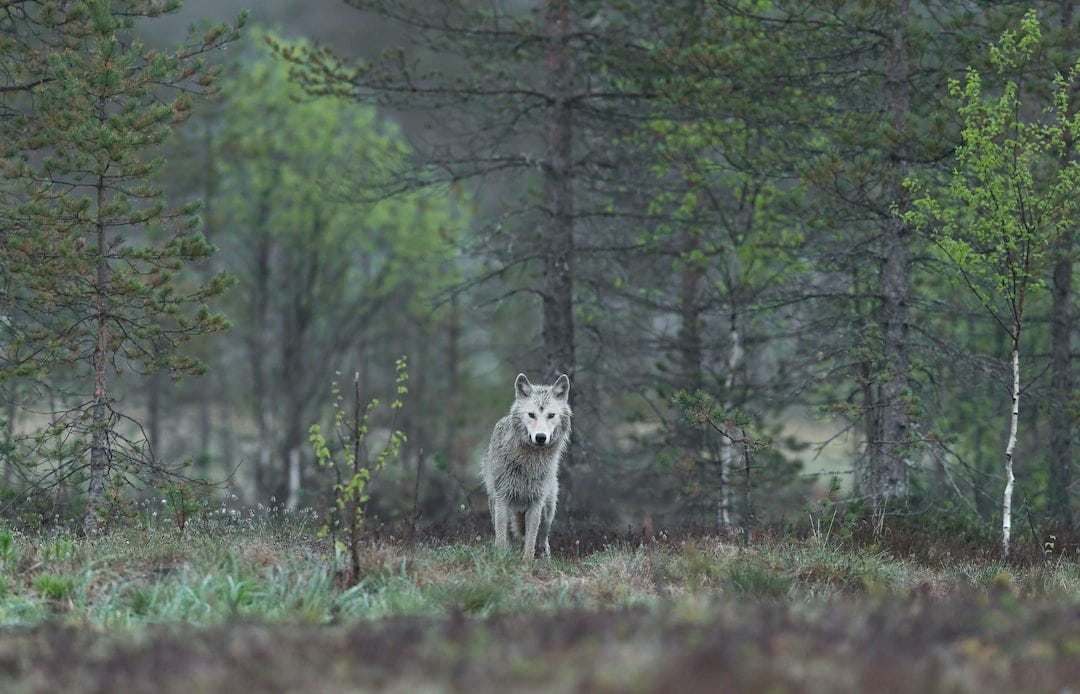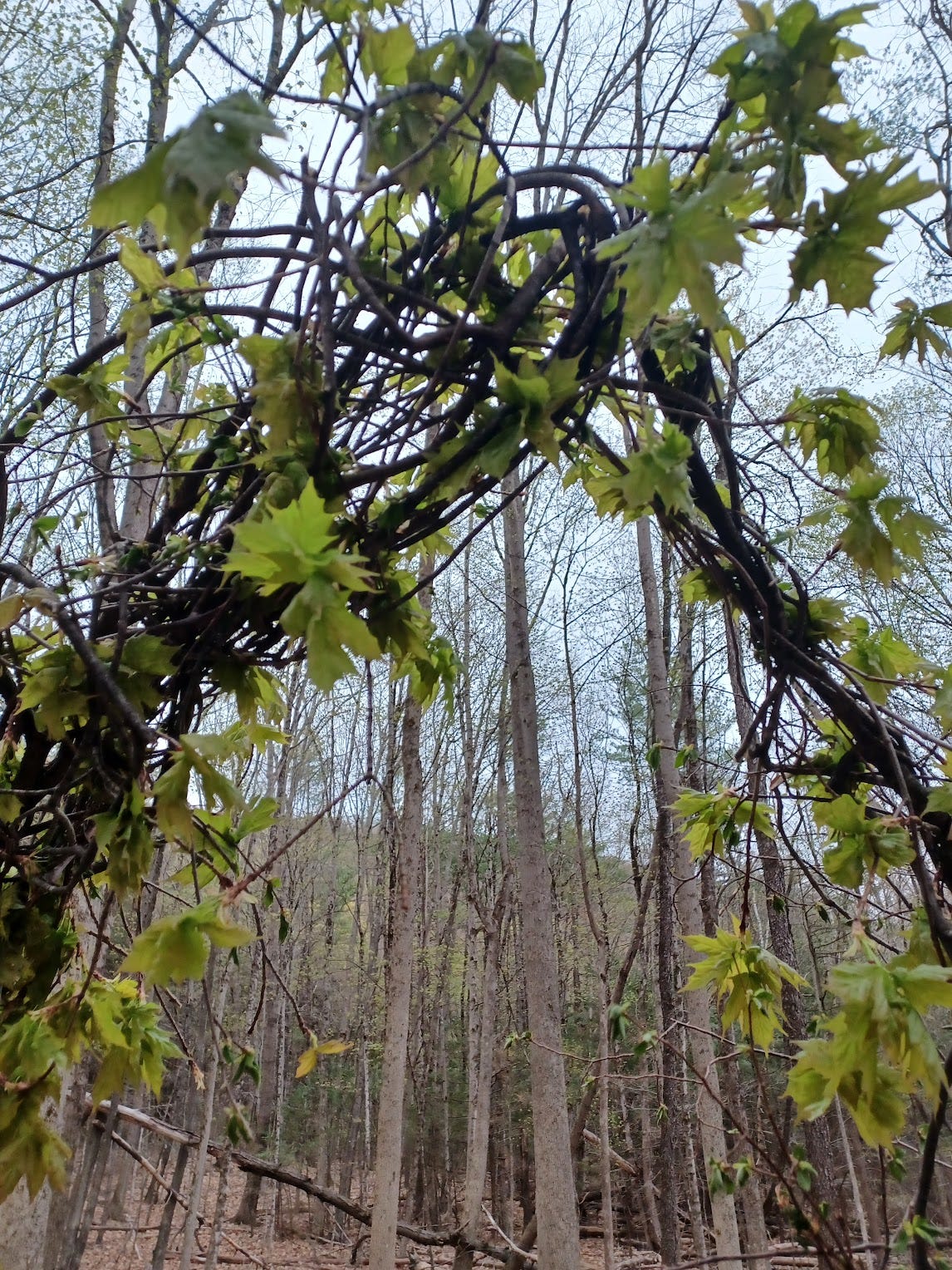I have been busy building a nest; a boundary. A quarter-acre garden fence of fallen trees. I am weaving their crowns together to protect us from deer. If I don't, the deer might eat the vegetables and herbs I started in early spring, now barely emerging from the ground. From afar the fence looks like a huge nest for a dragon's egg.
There are no wolves here but there should be. Gray wolves went extinct in Massachusetts in the mid-1800s during a time of all-out brutal slaughter. After thousands of years of wolves coexisting with the indigenous people of the Northeast, European bounty hunters shot, poisoned, trapped, tortured, and burned the animals until they were gone. Now, in their absence, deer are overpopulated and overbrowsing. Many are sick and we are the only predator apart from disease. In places like these where natural predators are missing, we are often confronted with saving deer or saving the environment. But unlike wolves who cull the weak and injured prey, humans — unless intentionally culling deer — tend to go for the strongest, the most robust.
A forest suffers without natural predators. What does it mean to do no harm?
I love the dappled light of spring. The veins of deciduous leaves look like the veins in my hand. But we must cull a few individuals — like the stands of saplings that are choking other plants and healthy trees — for biodiversity. All that I learn and study says, yes, that is the right thing to do in order to steward the land and bring the ecosystem to a place of health. In the city, I worshiped every weed. Now in the forest, I am coming to terms with cutting down trees.
Being a steward of land is not easy. And yet, a piece of paper — a deed — allows us to do what we will with the land. It’s fucked up. We have so much to learn and yet, every creature of the forest is at our mercy. We have no right. No one does.
My partner is mindful. I feel the ache of each tree and he tells me, "I'm going to honor the trees and use all of them. The tree was unhealthy. We need solar. There are millions of trees, we need a meadow for pollinators.”
These things are all true but still, I don't want to become cold or desensitized, I want to mourn them.
Yesterday, I worked with a maple tree my partner had to take down. The tree was cracked and tangled with vines. Crowded, yes. Suffering? Maybe. But still, the tree was striving, almost there, leaves unfurling to create dappled light.
Like me, the tree strived for sun, had relationships and saw many things I’ll never know. Roughly forty years old, the tree took less than five minutes to fall.
Now I weave the crown into our fence and howl.






"Roughly forty years old, the tree took less than five minutes to fall.
Now I weave the crown into our fence and howl."
For some reason, naming the age of the tree gives me a pronounced pain in knowing that we are equal beings, less wise and fleeting compared to their rooted lives. Honoring all life is so important. Thank you, so beautiful and striking.
“In the city, I worshiped every weed. Now in the forest, I am coming to terms with cutting down trees.
…
My partner is mindful. I feel the ache of each tree and he tells me, "I'm going to honor the trees and use all of them. The tree was unhealthy. We need solar. There are millions of trees, we need a meadow for pollinators.”
These things are all true but still, I don't want to become cold or desensitized, I want to mourn them.”
Thank you so much for this writing from the soul. I love this reminder to mourn. I felt my body relax when I got to this line — because this is the piece that is missing. Sometimes there is this larger pressure to skip mourning and use our brain to everything “OK” with hard or devastating things that we know need to happen, but no, we are allowed to feel the grief and let it move through us in honoring the life of these beings. We can mourn in the way we need to. Beautiful to howl and let that resonate into the forest. Sending energy back into this the earth.